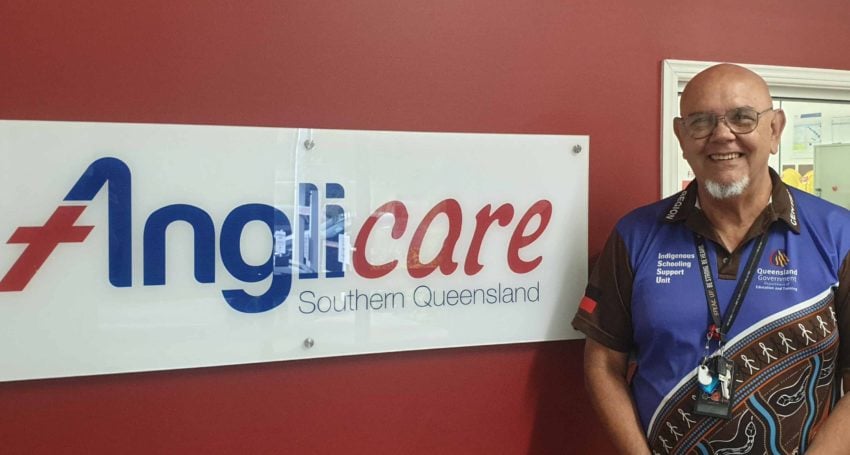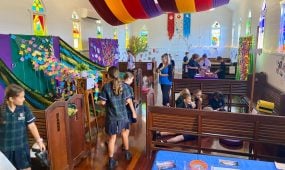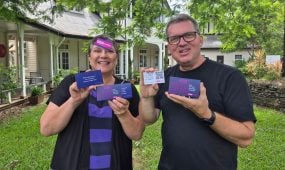Making Reconciliation a reality for First Nations children in care
Features
As National Reconciliation Week approaches, with this year’s theme being ‘More than a word. Reconciliation takes action’, Anglicare Cultural Support Officer and Pitta Pitta man Noel Doyle shares how non-Indigenous foster carers can help make Reconciliation a reality for First Nations children who are disproportionately represented in out-of-home care

National Reconciliation Week (NRW) is held between 27 May and 3 June annually, marking two significant milestones in the national Reconciliation journey – the successful 1967 Referendum and the High Court Mabo decision, respectively.
Our First Nations Peoples continue to be impacted by past and current government policies, which have contributed significantly to the proportionately high rates of First Nations children in out-of-home care.
Anglicare Southern Queensland has been supporting foster and kinship carers for over 25 years across Queensland, including in the care of First Nations children. The journey to becoming a foster or kinship carer involves a lot of learning, speaking with family and friends and decision making.
The following are three things non-Indigenous foster carers can do to appropriately and effectively support First Nations children in their care and help to make Reconciliation a reality for them.
-
Non-Indigenous foster carers need to have an understanding of Black Australia history, including an understanding:
- Of the difference between ‘settlement’ and ‘invasion’.
- Of Terra Nullius (‘nobody’s land’) which was a legal principle used to justify occupation.
- That this land now known as ‘Australia’ was inhabited by hundreds of culturally distinct Nations prior to European invasion, and was therefore not ‘discovered’ by Europeans.
-
Non-Indigenous foster carers and the First Nations young people in their care need to engage with the local Aboriginal or Torres Strait Islander communities, including:
- Attending First Nations Peoples’ community events (such as National Reconciliation Week and NAIDOC Week events).
- Participating in First Nations community activities.
- Learning the original names of the local First Nations places.
-
Non-Indigenous foster carers need to build trust and rapport when engaging with First Nations Peoples, including by:
- Developing an appreciation of First Nations cultures.
- Engaging with First Nations medical services.
- Promoting Reconciliation through genuine engagement, participation and understanding.
Non-Indigenous people also need to acknowledge that First Nations Peoples do not need to reconcile with ‘White Australia’; however, all Australians need to participate in the journey of Reconciliation to unite Australia as a whole.
We need to actively include First Nations Peoples in our community activities, events and initiatives so that we can learn from one another, and develop a real awareness, understanding, appreciation and respect for the cultures and histories of Aboriginal and Torres Strait Islander peoples – the inclusion of First Nations Peoples of Australia is central to the Reconciliation journey, not their exclusion.
Advertisement
And, that is healing for all of us.
Editor’s note: The theme for this year’s National Reconciliation Week is ‘More than a word. Reconciliation takes action’. ACSQ Reconciliation Action Plan Coordinator Sandra King OAM is coordinating some exciting NRW events – find out more by visiting the anglican focus Events page. You can download a suite of NRW resources on the National Reconciliation Week resources webpage. Reconciliation Australia asks that local NRW events be registered via the NRW website.





